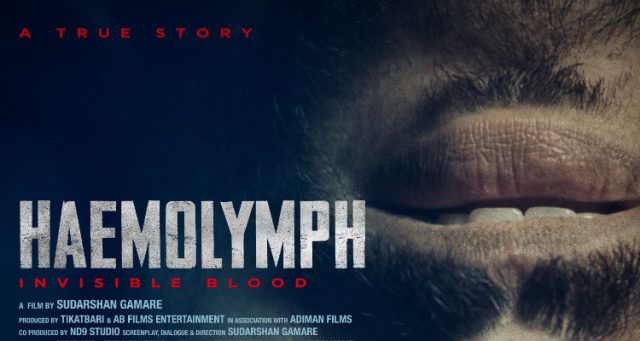Haemolymph, a Bollywood film directed by Sudarshan Gamare and starring Riyaz Anwar in the lead role, provides visibility to Muslim lives in India and deserves serious attention. The film is a departure from the Muslim characters typically depicted in Bollywood films.
The film is based on the life experiences of Abdul Wahid Shaikh, who was falsely convicted in the Mumbai serial blasts that led to his suffering, torture and imprisonment for 9 years. Although Haemolymph has been released in various places, it has screened for the first time in Kerala a few days back at the premiere show by SIO Samvedana Vedi at the Ashirvad Theater, Kozhikode. It is a courageous effort on the part of SIO to screen such a film while Hindutva propaganda films dominate the mainstream discourse.
Abdul Wahid Shaikh’s character in the film shares the realization that Muslim lives in India are that of a threat to National security and is guilty until proven innocent in the eyes of the state. The plot of the film begins when the Anti-Terrorism Squad (ATS) arrives at the school in search of Shaikh, a school teacher who was leading a congested but normal family life in Mumbai and takes him into custody.
In the days that followed, he was subjected to constant interrogation and severe physical and mental torture by ATS officials. Later, he is prosecuted for allegedly harbouring two Pakistani terrorists who eventually came to carry out the Mumbai train blasts of 2006. That is how Shaikh was imprisoned along with twelve other Muslim youths who were falsely charged with similar cases. The lives of these folks in prison and their legal battles determine the film’s sequel.
The principal theme of the film is that to live a normal life is nearly impossible for Muslims, particularly the ones who have been tormented in prison under false pretences.
The life of a Muslim in India is much more insecure than any other Indian when it comes to dealing with law enforcement agencies that are responsible for ensuring the protection of the lives and property of the citizens. A mere Muslim ignites prejudices and hatred from law enforcement agencies.
The film calls out for criticism that the legal system in India is merely a puppet or takes the side of the oppressor when it comes to Muslim issues, no matter how transparent and strong it is. The English word haemolymph is used to refer to invisible blood. The film exposes the same invisibility of the blood and tears of Muslim lives in India.
Within a year of Abdul Wahid Sheikh’s release from prison after nine long years of state terrorism, he marked his struggle by publishing a book called Beguna Qaidi (Innocent Prisoner).
The book was later translated into three languages, including English, and became the basis for this film. Wahid Sheikh reiterates the question, after all these years, what is the deterrent to obtaining justice for Muslim youths who have been wrongfully convicted in similar cases and are still in jail. He also raises the question of compensation for such innocent lives wrecked by the state.






